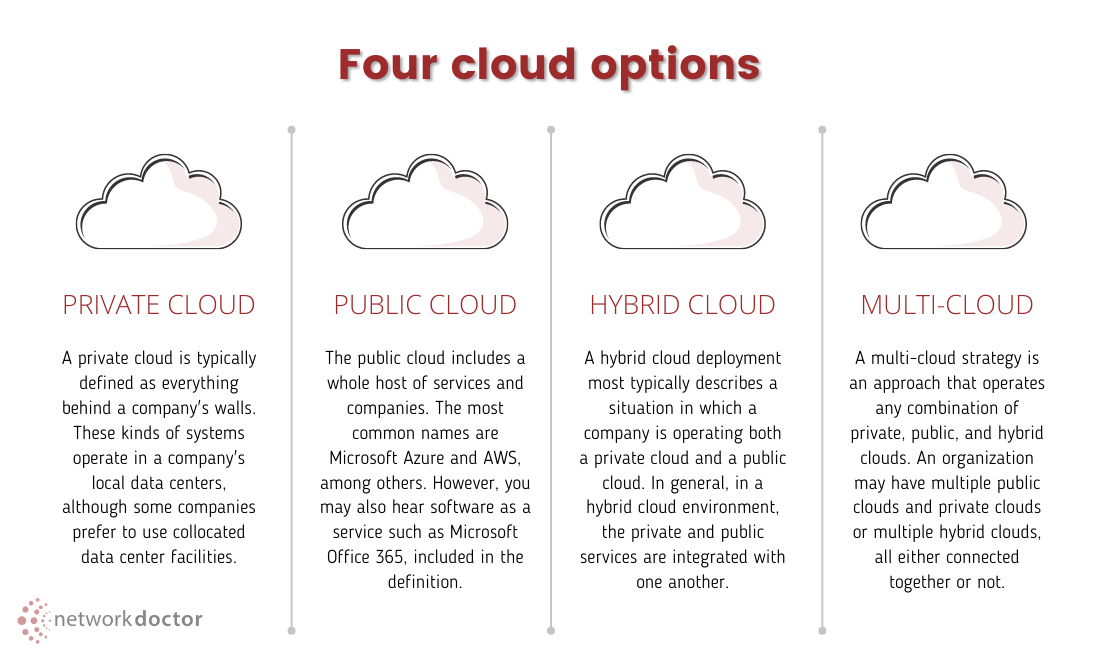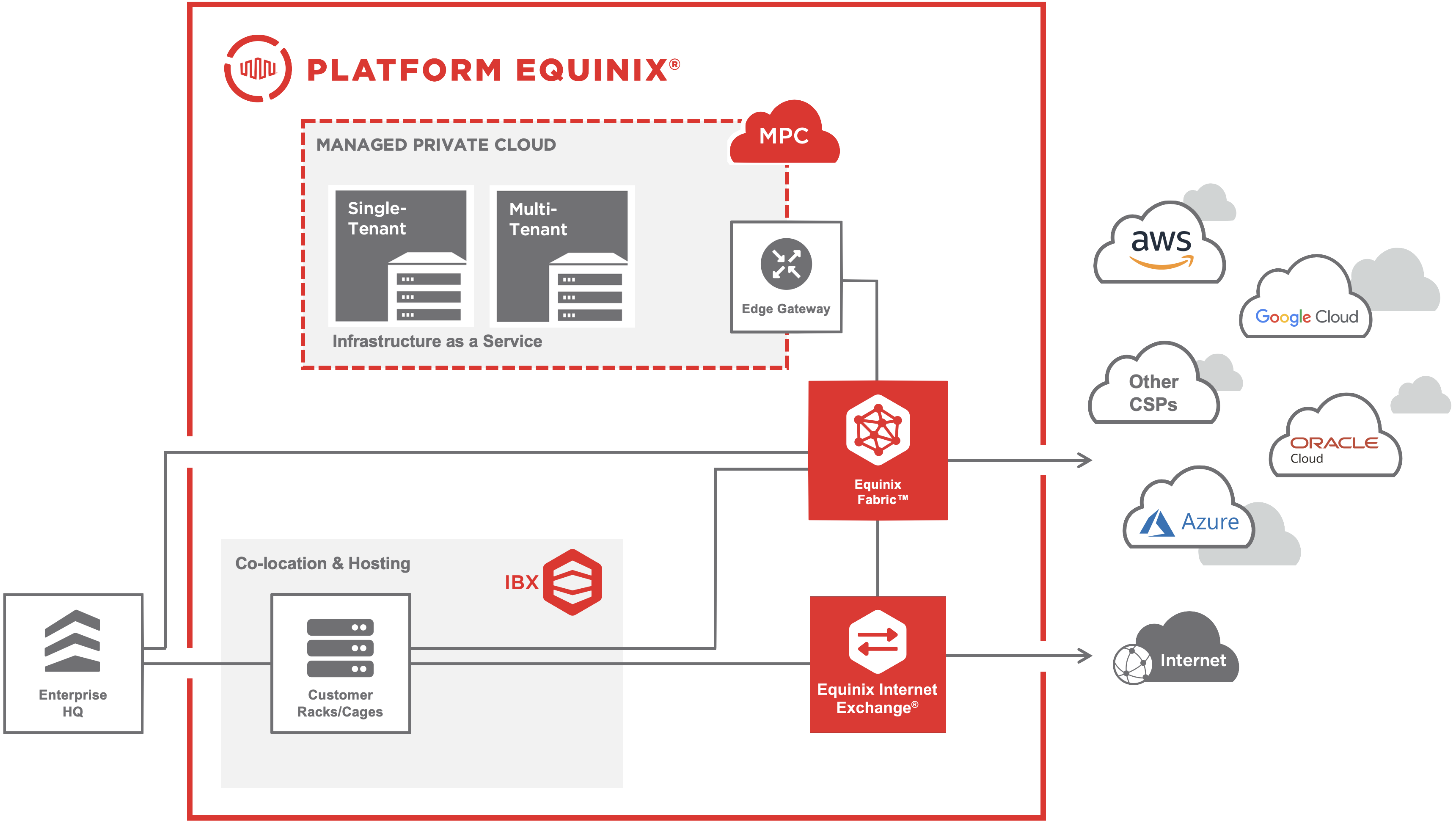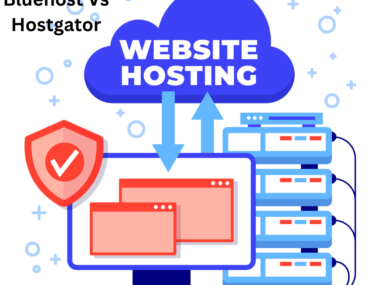In today’s digital age, enterprises need robust, flexible hosting solutions. AWS hybrid hosting offers a blend of on-premises and cloud services.
Also Read
Enterprises face unique challenges in managing their IT infrastructure. Many companies require both the security of on-premises systems and the scalability of the cloud. AWS hybrid hosting solutions bridge this gap seamlessly. They provide the best of both worlds, ensuring that businesses can scale efficiently while maintaining control over sensitive data.
This approach allows enterprises to optimize performance, cost, and security, making it an ideal choice for modern businesses. Read on to discover how AWS hybrid hosting can transform your enterprise’s IT strategy.
Introduction To Aws Hybrid Hosting
Enterprises today seek flexible and scalable hosting solutions. AWS Hybrid Hosting combines the best of both worlds. It integrates on-premises infrastructure with cloud services. This blend offers a unique advantage, ensuring data security and scalability.
Benefits Of Hybrid Hosting
- Scalability: Scale resources up or down based on demand.
- Cost Efficiency: Pay only for what you use.
- Security: Keep sensitive data on-premises while leveraging cloud security.
- Flexibility: Use the right tool for the right job.
- Disaster Recovery: Ensure business continuity with cloud backups.
Key Components
Understanding the key components is crucial. Here are the main elements:
| Component | Description |
|---|---|
| AWS Direct Connect | Provides a dedicated network connection to AWS. |
| AWS Storage Gateway | Integrates on-premises environments with cloud storage. |
| AWS Outposts | Brings AWS infrastructure to on-premises locations. |
| AWS VPN | Secures data transmissions between on-premises and cloud. |
Utilize these components for a robust hybrid setup. They offer seamless integration and enhanced performance.
Understanding Enterprise Needs
Enterprises today have unique requirements for their hosting solutions. They need to balance performance, security, and cost. AWS Hybrid Hosting Solutions provide a flexible and scalable environment. They offer the right balance between cloud and on-premise resources.
Scalability And Flexibility
Enterprises need systems that can grow with their demands. AWS Hybrid Hosting Solutions offer scalability and flexibility. Whether you need to handle a spike in traffic or expand to new markets, AWS has you covered.
- Scale resources up or down based on demand
- Deploy applications in multiple regions
- Seamlessly integrate on-premise and cloud resources
Scalability ensures your systems remain efficient and responsive. Flexibility allows you to adapt quickly to changing business needs.
Cost Management
Managing costs is crucial for enterprises. AWS Hybrid Hosting Solutions help control expenses while delivering high performance.
| Cost Management Feature | Benefit |
|---|---|
| Pay-as-you-go pricing | Only pay for what you use |
| Reserved Instances | Save money with long-term commitments |
| Cost Explorer | Analyze and optimize your spending |
These features help enterprises optimize their budgets. They ensure you get the best value for your investment.
Aws Services For Hybrid Solutions
Enterprises are increasingly adopting hybrid hosting solutions to leverage the benefits of both on-premises infrastructure and cloud computing. AWS offers a range of services that enable seamless integration between on-premises and cloud environments. These services ensure consistent performance, security, and management across hybrid setups.
Aws Outposts
AWS Outposts bring native AWS services, infrastructure, and operating models to on-premises facilities. This service allows enterprises to run applications on-premises while seamlessly connecting to AWS’s cloud services. Outposts come in various configurations, providing the same hardware and software infrastructure used in AWS data centers.
- Run low-latency applications on-premises
- Extend AWS services to any data center or on-premises facility
- Manage infrastructure using familiar AWS tools
With AWS Outposts, you can develop once and deploy across hybrid environments. It simplifies the management of hybrid applications and ensures consistent performance.
Aws Direct Connect
AWS Direct Connect establishes a dedicated network connection from your premises to AWS. This service reduces network costs, increases bandwidth throughput, and provides a more consistent network experience than internet-based connections. Direct Connect is ideal for enterprises requiring stable and high-speed connectivity between on-premises and AWS.
- Dedicated, high-speed connection to AWS
- Lower latency and increased reliability
- Enhanced security with private network connections
Enterprises can use Direct Connect to transfer large amounts of data, support hybrid architectures, and ensure secure connectivity. It is a vital component for businesses needing robust and reliable network performance.
Both AWS Outposts and AWS Direct Connect are crucial for implementing efficient hybrid cloud solutions. These services provide the flexibility, performance, and security enterprises need to operate in a hybrid environment.

Credit: aws.amazon.com
Integrating On-premises With Aws
Integrating on-premises infrastructure with AWS offers enterprises a flexible, scalable solution. This hybrid approach allows businesses to leverage both local resources and cloud services. It ensures data security, compliance, and cost efficiency. Let’s explore key components that facilitate this integration.
Network Connectivity
Seamless network connectivity is vital. AWS Direct Connect offers a dedicated network connection to AWS. This reduces latency and ensures consistent network performance. It connects your data centers or offices directly to AWS. Virtual Private Cloud (VPC) peering allows secure communication. It connects VPCs within AWS and with on-premises networks. AWS Transit Gateway simplifies network management. It allows you to connect multiple VPCs and on-premises networks through a single gateway.
Data Migration Strategies
Effective data migration ensures smooth transitions. AWS Snowball accelerates large data transfers. It’s a physical device that securely moves data to AWS. AWS DataSync automates and speeds up data transfer. It syncs data between on-premises storage and AWS. Database Migration Service (DMS) helps migrate databases with minimal downtime. It supports various database engines and ensures data integrity.
Choosing the right strategy depends on data size, speed, and security needs. Proper planning and execution minimize disruptions. Enterprises can then enjoy the full benefits of a hybrid cloud environment.
Security And Compliance
When enterprises adopt AWS hybrid hosting solutions, security and compliance become top priorities. Ensuring data is protected and regulatory requirements are met is crucial. This section explores how AWS hybrid hosting addresses these important aspects.
Data Protection
Data protection is essential for any enterprise. AWS hybrid hosting solutions offer robust security features to keep data safe. These solutions include:
- Encryption: AWS provides both at-rest and in-transit encryption.
- Access Control: Fine-grained access control policies ensure only authorized users access data.
- Monitoring: Continuous monitoring helps detect and respond to threats quickly.
Encryption ensures sensitive data is unreadable without proper keys. Access control policies limit data access based on roles and permissions. Monitoring detects unusual activities and potential threats in real-time.
Regulatory Requirements
Meeting regulatory requirements is critical for enterprises. AWS hybrid hosting solutions help organizations comply with various regulations. These include:
| Regulation | Description |
|---|---|
| GDPR | Protects personal data of EU citizens. |
| HIPAA | Ensures the security of health information in the U.S. |
| PCI DSS | Secures credit card transaction data. |
GDPR compliance protects the personal data of EU citizens. HIPAA ensures the security of health information in the U.S. PCI DSS secures credit card transaction data, preventing fraud and breaches.
Using AWS hybrid hosting solutions, enterprises can meet these regulatory requirements. This ensures their data remains secure and compliant with laws.

Credit: www.networkdr.com
Performance Optimization
Performance optimization is crucial for enterprises using AWS hybrid hosting solutions. Efficient performance ensures smooth operations, reduced latency, and better user experience. Let’s explore some key aspects of performance optimization in AWS hybrid environments.
Load Balancing
Load balancing distributes network traffic across multiple servers. This ensures no single server gets overwhelmed. AWS offers Elastic Load Balancing (ELB) to manage traffic distribution. ELB can automatically adjust to changes in traffic. This helps maintain high availability and fault tolerance.
With load balancing, enterprises can handle traffic spikes effectively. It ensures consistent performance and improved user experience. Load balancing also aids in reducing downtime. This boosts reliability and customer satisfaction.
Monitoring And Troubleshooting
Monitoring is vital for maintaining optimal performance. AWS provides tools like CloudWatch for real-time monitoring. CloudWatch collects and tracks metrics. It also sets alarms and reacts to changes in your environment.
With these insights, enterprises can quickly identify performance issues. Prompt troubleshooting minimizes potential disruptions. AWS also offers X-Ray for deeper analysis. X-Ray helps trace requests as they travel through your application.
This level of monitoring ensures quick detection of bottlenecks. Troubleshooting becomes more efficient and precise. Regular monitoring and quick troubleshooting are key to maintaining high performance.
Case Studies
Exploring real-world examples can help you understand the benefits of AWS Hybrid Hosting Solutions for Enterprises. These case studies highlight successful implementations and lessons learned from businesses that have adopted hybrid cloud strategies.
Successful Implementations
Several enterprises have successfully implemented AWS Hybrid Hosting Solutions to meet their unique requirements. Here are a few notable examples:
| Company | Industry | Solution |
|---|---|---|
| Company A | Financial Services | Hybrid cloud for data security and compliance |
| Company B | Healthcare | Hybrid cloud for patient data management |
| Company C | Retail | Hybrid cloud for scalable e-commerce platforms |
Company A, a leader in financial services, used AWS hybrid cloud to enhance data security. They needed a solution that could handle sensitive data while ensuring compliance with industry regulations. By integrating on-premises infrastructure with AWS cloud services, they achieved a secure and scalable environment.
Company B, a healthcare provider, faced challenges with patient data management. They required a solution that could offer high availability and disaster recovery. AWS hybrid cloud offered the perfect blend of on-premises control and cloud flexibility, ensuring data remained secure and always accessible.
Company C, a global retailer, needed a scalable solution for their e-commerce platform. Their existing infrastructure struggled with peak traffic demands. By adopting AWS hybrid cloud, they could scale resources dynamically, ensuring a smooth shopping experience for their customers.
Lessons Learned
These case studies also offer valuable insights into the challenges and best practices for implementing AWS Hybrid Hosting Solutions.
- Security and Compliance: Ensuring data security and compliance is crucial. Integrate your on-premises infrastructure with cloud services to meet regulatory requirements.
- Scalability: Hybrid cloud solutions offer dynamic scalability. Use this feature to handle varying workloads and peak demands efficiently.
- Cost Management: Optimize your costs by balancing on-premises and cloud resources. Monitor usage and adjust as needed to avoid overspending.
- Training and Support: Invest in training your IT staff on hybrid cloud technologies. Ensure you have adequate support to handle any issues that arise.
By following these best practices, enterprises can leverage AWS Hybrid Hosting Solutions to achieve their business goals while overcoming common challenges.
Future Trends
The world of cloud computing is always changing. Enterprises are now looking at hybrid hosting solutions. AWS hybrid hosting offers a mix of on-premises and cloud solutions. This provides flexibility and scalability. Understanding future trends can help businesses plan better. Let’s explore these trends in the context of AWS hybrid hosting.
Evolving Technologies
Technology is constantly evolving. AWS hybrid hosting is no different. Edge computing is gaining traction. This involves processing data closer to its source. It reduces latency and improves performance. 5G technology is another game changer. It supports faster data transfer and enhances user experiences. Artificial Intelligence (AI) and Machine Learning (ML) are also shaping hybrid hosting. They automate tasks and provide valuable insights.
Predictions For Hybrid Hosting
Several predictions are emerging for hybrid hosting. Increased adoption is one major trend. More enterprises are likely to adopt hybrid solutions. Enhanced security features are expected to be a focus area. Providers will offer better encryption and authentication methods. Cost management will also improve. Tools will help track and optimize expenses.
Integration with other platforms will become seamless. This will help in better data management. Hybrid multi-cloud environments will see growth. Enterprises will use multiple cloud providers for various needs.
| Trend | Impact |
|---|---|
| Edge Computing | Reduces latency |
| 5G Technology | Faster data transfer |
| AI and ML | Automates tasks |
| Enhanced Security | Better encryption |
| Cost Management | Optimizes expenses |
| Integration | Seamless data management |
| Hybrid Multi-Cloud | Better resource utilization |
These trends highlight the future of AWS hybrid hosting. Staying updated can give enterprises a competitive edge.

Credit: docs.equinix.com
Frequently Asked Questions
What Is Aws Hybrid Hosting?
AWS Hybrid Hosting combines on-premises infrastructure with AWS cloud services. It ensures flexibility, scalability, and cost-efficiency for enterprises. This approach allows businesses to leverage both environments seamlessly.
How Does Aws Support Hybrid Solutions?
AWS supports hybrid solutions through services like AWS Outposts, Direct Connect, and Storage Gateway. These services ensure seamless integration of on-premises and cloud environments, offering consistent operations.
Why Choose Hybrid Cloud For Enterprises?
Hybrid cloud offers scalability, flexibility, and cost savings. It allows enterprises to keep sensitive data on-premises while using cloud resources for scalability and innovation.
What Are The Benefits Of Aws Outposts?
AWS Outposts delivers AWS infrastructure on-premises. It offers consistent operations, low latency, and seamless integration with AWS services. It is ideal for latency-sensitive applications.
Conclusion
AWS hybrid hosting solutions offer great flexibility for enterprises. They combine the best of both worlds, cloud and on-premises. This approach ensures better performance and security. Enterprises can scale efficiently as per their needs. AWS hybrid hosting supports diverse workloads seamlessly.
It also optimizes costs and enhances user experience. Adopting AWS hybrid hosting can streamline your IT infrastructure. It is a powerful choice for modern enterprises. Embrace the future with AWS hybrid solutions today.












